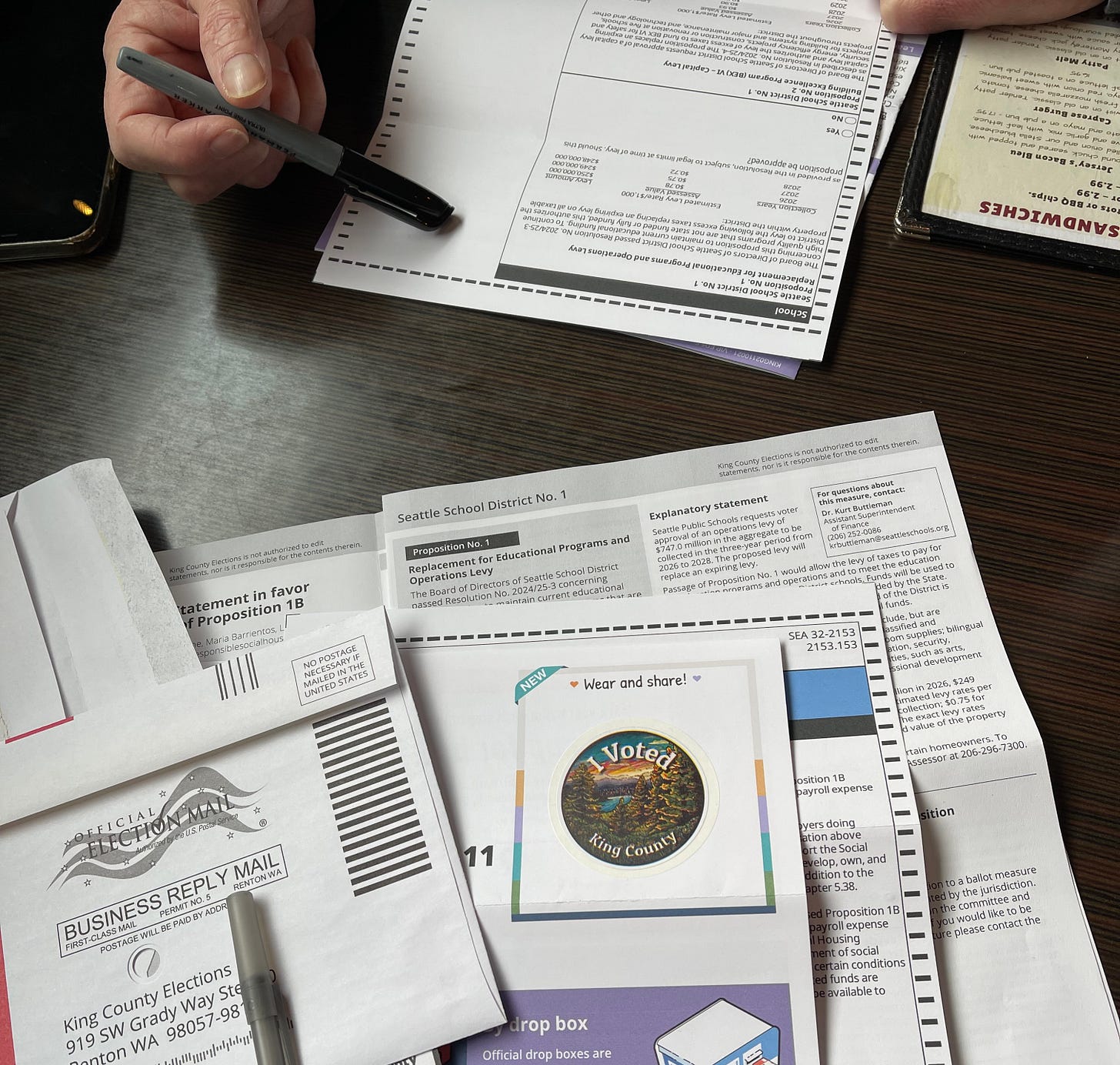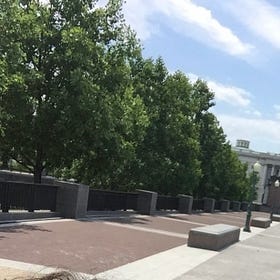Introducing Civics for Adults
Why I jumped into Substack to talk about how our government works and to help more Americans become well informed citizens and voters.
I started this newsletter in January 2025 out of frustration over the lack of participation in the past three presidential elections. Everyone talks about the results being 50-50, but that simply isn’t true. About a third of all U.S. eligible voters chose Donald Trump for president in November 2024. Another third chose Kamala Harris and a third sat home and sat out the election.
That’s tens of millions of adult Americans who decided not to vote. I know many of them had a reason for making this decision, but I would argue they are all failing their obligation as citizens of this country. It’s not illegal to fail to turn in a ballot, like it is in some other countries, but Americans should at least feel a bit guilty for not voting. People fought and died for that right and even today some are fighting to take that right away from people they don’t like.
Thank you for taking your civics education seriously by subscribing to this newsletter. you can make even more of a difference by sharing this information with friends and family members who are disengaged, misinformed or disenchanted with the American political system.
One fact they may not realize: If every eligible voter cast their ballot for president, the election would be decided by people under 35 and not by voters over 60 who are the main deciders in the country today. How can this be? Demographics, my friend. The Baby Boomer generation is shrinking and Gen X, Millenials and Gen Z add up to a larger voting block. But the people who run political parties know they should focus their campaigns on the Baby Boomers because they vote in much larger numbers. I’m hoping to change that — and join others in that quest — one voter at a time.
Who writes Civics for Adults?
I’m a veteran journalist, who recently retired from my full-time job as news editor of a nonprofit news site in Seattle that focuses on government and politics. If you’re from Washington, I recommend you check out Cascade PBS, for a deeper look at the issues facing the state.
Before Cascade PBS, which was previously called Crosscut, I worked for The Seattle Times as an opinion writer and before that I spent most of my journalism career covering news, government, education, healthcare and science for The Associated Press in Seattle, Cheyenne, Wyoming, Raleigh, N.C., and Newark, N.J.
I retired after the 2024 election because I was tired of the daily grind of journalism, but I knew I still wanted to do something to serve my country (Yes, I consider being a journalist a frontline profession. We run toward the crises and keep going after too many 10-hour days covering COVID, earthquakes, storms and elections. We work for our readers and for the public good.)
Where’s the paywall?
I do not have a paywall. That would interfere with my goal to reach as many people as possible. Do not interpret that as me saying: I am independently wealthy and do not need to be paid. See above: I retired from a long career as a journalist, which is not a well paid professional. But right now I’m a bit more concerned about my country than I am about my pocket. And I am still working as a freelance writer and editor.
But I would LOVE your vote of confidence and support. Please consider becoming a paid subscriber. I’m making other efforts to reach the unengaged on other platforms and your financial support helps make that happen.
Please share my newsletter with friends and family members who you think would benefit from the information I am sharing. I recommend you start by sharing this post:
Your citizen’s toolkit for taking political action
News is breaking at 100 miles per hour. Don’t let overwhelm paralyze you from taking action. There’s always something you can do to make a difference. You have many opportunities to make sure your voice is heard, other than complaining to your friends and family and shouting into the Internet void.





